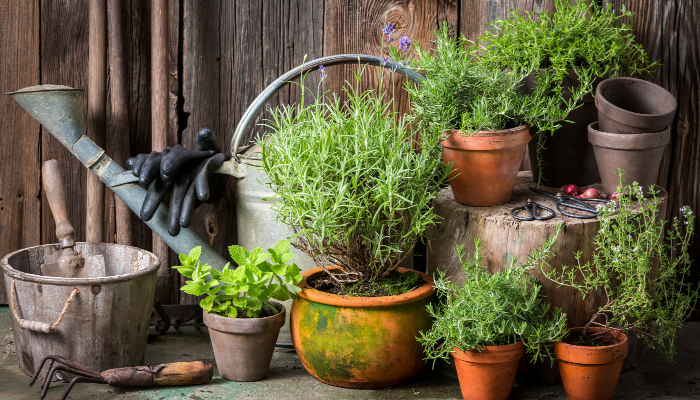By TMoM Team Member JamillahNeeairah Nasir (Mama J)
Gardening with my children has created some of my favorite parenting memories. I remember rummaging through the storehouse for discarded flowerpots to fill with soil and seeds we confiscated from produce. It was a sure sign of summer when they enthusiastically declared the need to grow tomatoes, squash, or corn. This hands-on experience taught them about the journey of food from seed to plate. Gardening in summer is a common activity that almost everyone tries.
To ensure a joyful gardening experience, it’s important to choose a sunny spot or use containers if space is limited. Starting with popular medicinal herbs like lavender, chamomile, peppermint, basil, sage, thyme, and rosemary is ideal for beginners. These herbs offer healing properties and are easy to grow. Engaging children in researching the needs of each plant and its uses, fosters a love for nature and learning. By teaching them about proper soil drainage, regular watering, and adequate sunlight, they become backyard botanists.
As the herbs mature, it’s time to learn how to harvest and preserve their medicinal properties. Harvesting in the morning when the essential oils are most concentrated is recommended. Cutting the stems above the leaf nodes encourages new growth. Air-drying is the simplest preservation method. Hang small bunches of herbs upside down in a cool and dry place. Lastly, store them in airtight containers away from sunlight.
Medicinal herbs offer various healing benefits. In addition, you can use them in infusions, teas, salves, balms, oils, and culinary creations. A favorite summer recipe of mine involves making iced tea using lavender and mint. Mint tea relieves headaches and indigestion, and lavender offers us a very relaxing treat for the olfactory senses.
Herbs like calendula and lavender aid in healing cuts, reducing stress, and improving sleep. It’s very simple to create herbal salves that can be used to soothe bug bites and sunburn. There are many books and articles that speak to what that process looks like. However, it’s important to consult a qualified herbalist or healthcare professional before using some herbs, especially if you have medical conditions or take traditional western medicines.
Growing herbs in your own garden can be a joyous and educational experience for the family. Incorporating medicinal herbs into the garden adds another dimension of well-being that you are able to be in control of. By cultivating a healing herb garden, you connect with nature and take charge of your health in a holistic and sustainable way. Enjoy this summer project, and you will discover the abundance of benefits it brings over the course of a lifetime.
Want to see more blogs like this and also get notifications on local events and happenings? Subscribe to our free weekly newsletters here.













